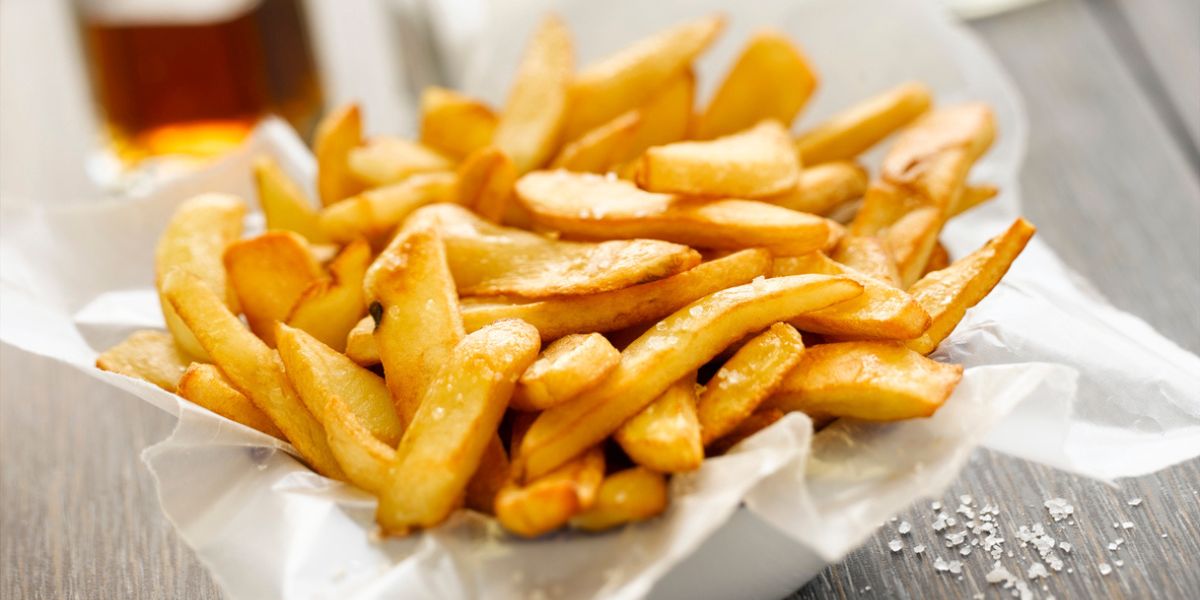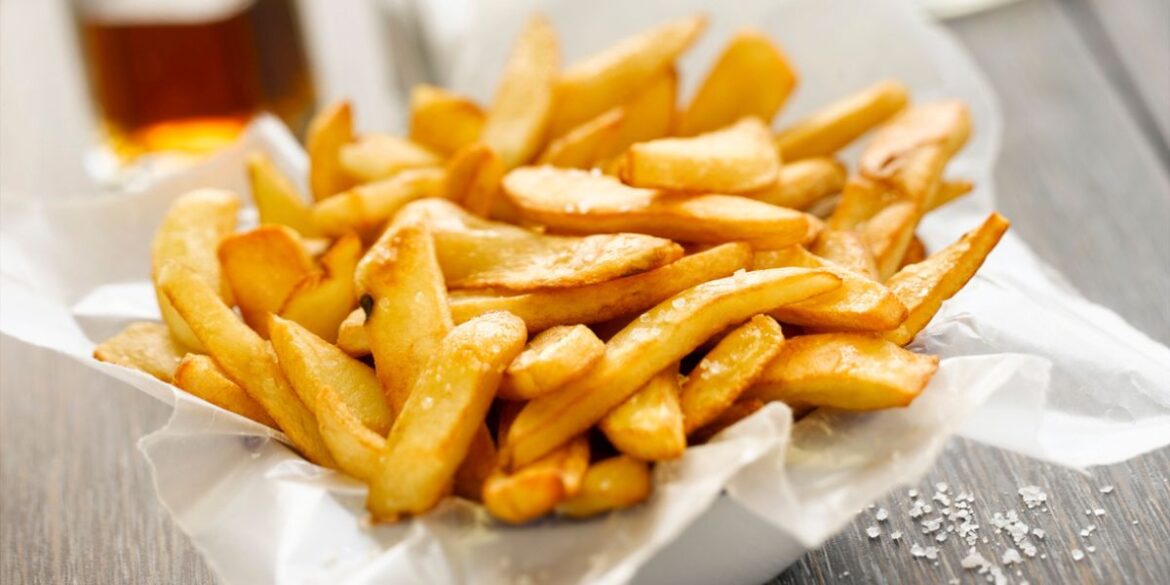The study suggested that the harm came less from potatoes in general and more from frying them, which adds calories, unhealthy fats, and often salt.
![]()
Published Aug 17, 2025 | 7:00 AM ⚊ Updated Aug 17, 2025 | 7:00 AM


French Fries. (iStock)
Synopsis: The study in the BMJ found that eating French fries regularly was linked to a higher chance of developing type 2 diabetes. When the researchers analysed potato intake, they found clear differences depending on the type and cooking method. The pattern suggested that the harm came less from potatoes in general and more from frying them, which adds calories, unhealthy fats, and often salt.
A recent study found that eating French fries regularly was linked to a higher chance of developing type 2 diabetes, while boiled, baked, or mashed potatoes showed no such strong link.
The study titled Total and specific potato intake and risk of type 2 diabetes: results from three US cohort studies and a substitution meta-analysis of prospective cohorts was published on 6 August in the BMJ.
Drawing data from over 2,05,000 men and women in long-term health studies, the research explored how different forms of potato consumption, especially French fries, affect the risk of developing type 2 diabetes, and what happens when potatoes are replaced with other carbohydrate sources.
The findings hold a mirror to everyday eating habits in many parts of the world. In cities and towns where fried foods have moved from occasional treats to routine snacks, the question is no longer about whether people eat French fries but about how often, in what quantities, and at what long-term cost to their health.
Also Read: South India’s economic rise shadowed by nation’s highest diabetes burden
French fries found to raise type 2 diabetes risk
The BMJ research drew on data from three long-running US health studies, the Nurses’ Health Study (1984–2020), Nurses’ Health Study II (1991–2021), and Health Professionals Follow-up Study (1986–2018).
Together, these involved 2,05,107 participants who were free from diabetes, cardiovascular disease, and cancer when they enrolled. Their health and dietary habits were tracked for decades, resulting in over 5.17 million person-years of follow-up. During this period, 22,299 new cases of type 2 diabetes were documented.
When the researchers analysed potato intake, they found clear differences depending on the type and cooking method. For total potato consumption, every increase of three servings per week was linked to a five percent rise in the risk of type 2 diabetes.
However, the risk was far more pronounced for French fries: The same three-serving increase per week was associated with a 20 percent higher risk. In contrast, baked, boiled, or mashed potatoes did not show a significant association with the disease.
The study also looked at how swapping potatoes for other carbohydrate sources might change risk levels. Replacing three weekly servings of French fries with whole grains lowered the risk of type 2 diabetes by 19 percent, while replacing baked, boiled, or mashed potatoes with whole grains reduced risk by four percent. But substituting potatoes with white rice had the opposite effect, leading to an increased risk.
A meta-analysis of 13 prospective cohort studies, covering 5,87,081 participants and 43,471 diabetes cases, backed up these findings. It showed that fried potatoes were linked to a 16 percent higher risk of type 2 diabetes, while total potato intake was linked to only a small increase.
The pattern suggested that the harm came less from potatoes in general and more from frying them, which adds calories, unhealthy fats, and often salt.
These findings carry weight beyond the United States. In India too, French fries have become a common, low-cost snack sold in fast-food outlets, cafes, and even small roadside stalls. With rising urban consumption and growing availability, concerns are increasing that frequent intake of such fried snacks could add to the country’s already heavy burden of type 2 diabetes.
Also Read: When diabetes strikes the undernourished: The rise of type 5
Indian eating habits could magnify diabetes risk
Speaking to South First, Dr Jimmy Prabhakar, Senior Consultant, Internal Medicine and Diabetology at Rela Hospital, Chennai, noted that the BMJ findings on French fries fit into a broader understanding of how certain foods impact diabetes risk.
“Only French fries showed this strong link in the study. Other forms of potatoes were not significantly associated, but potatoes in general are a high glycaemic index food,” he said.
He added that in diabetic diets, all root and tuber vegetables, that is, vegetables which are grown underground, should be eaten sparingly or preferably avoided. Explaining the possible reasons behind the higher risk, Dr Prabhakar pointed to the combined effect of the potato’s starch content and the deep-frying process.
“Potato itself is a high glycaemic index food, plus deep frying adds to very high triglyceride levels. Persistent high salt and triglyceride intake can alter the body’s physiology and contribute to obesity and insulin resistance,” he said. These changes, he explained, increase the risk of type 2 diabetes and related health problems.
He warned that the risk could be even greater in India, where French fries are often consumed with sugary drinks like cola. “Cola is high in sugar and preservatives. Together with fried foods, it can form part of a metabolic syndrome like obesity, diabetes, hypertension, high cholesterol, high triglycerides, and low HDL, which predisposes people to diabetes,” he said.
This risk, he cautioned, is not limited to adults. Childhood obesity, fuelled by regular consumption of fried snacks from as early as four or five years of age, is now a significant contributor to diabetes later in life.
On cooking methods, Dr Prabhakar noted that reusing oil multiple times, a common practice in some eateries, has to be blamed for all the diseases. He said oil should not be reused more than once or twice, as repeated heating makes it carcinogenic.
Air frying, he acknowledged, is a better alternative to deep frying, but pointed out that frozen and packaged fries often contain high salt and preservatives, which can still contribute to obesity and diabetes over time.
While French fries were the focus of the BMJ study, Dr Prabhakar also commented on other potato-based snacks popular in India, such as aloo tikki or stuffed parathas. He said all foods can be part of a balanced diet if eaten in moderation, but overindulgence in high glycaemic index foods without adequate physical activity will, over the long term, increase the risk of diabetes.
(Edited by Muhammed Fazil.)



Dining and Cooking